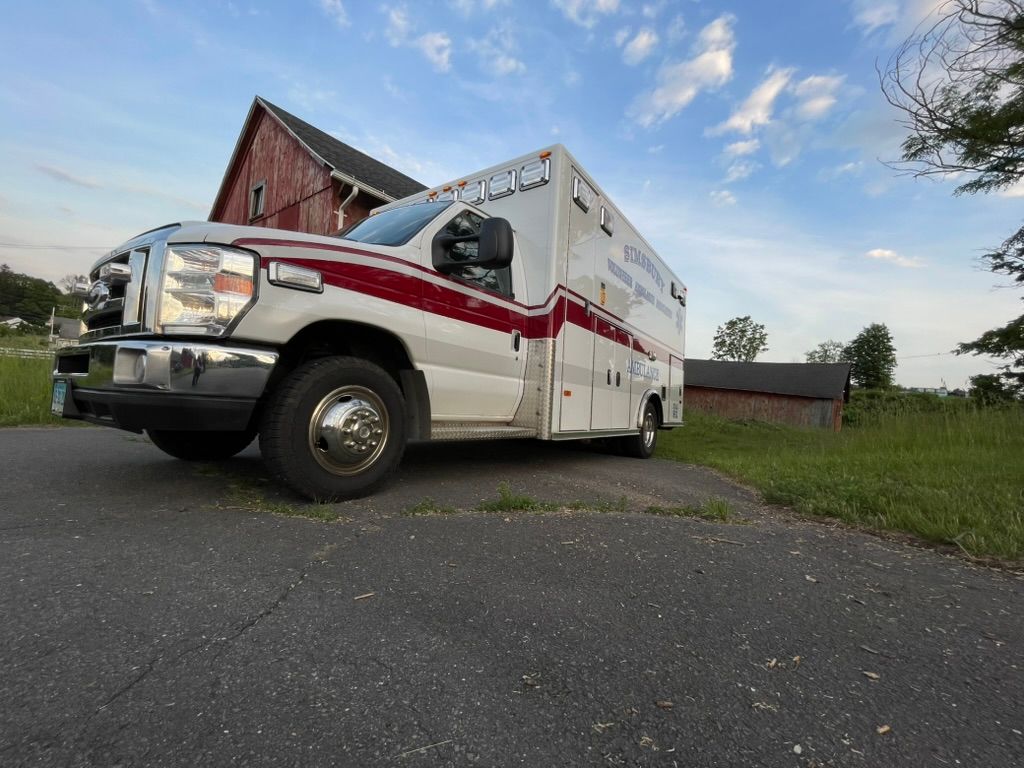When should I call 9-1-1?
If you're not sure, err on the side of caution and call 9-1-1 for an emergency.

This page is not a replacement for medical advice. If you believe you're having an emergency, call 9-1-1. Information provided by www.medline.gov.
Signs of an Emergency
How quickly do you need care? If a person or unborn baby could die or be permanently disabled, it is an emergency.
Call 911 or the local emergency number to have the emergency team come to you right away if you or someone with you cannot wait, such as for:
- Choking
- Stopped breathing
- Head injurywith passing out, fainting, or confusion
- Injury to neck or spine, particularly if there is loss of feeling or inability to move
- Electric shock or lightning strike
- Severe burn
- Severe chest painor pressure
- Severe shortness of breath
- Seizure that lasted more than 1 minute or from which the person does not rapidly awaken
- Suddenly not able to speak, see, walk, or move
- Suddenly weak or drooping on one side of the body
Go to an emergency department or call 911 or the local emergency number for help for problems such as:
- Trouble breathing
- Passing out, fainting
- Pain in the arm or jaw
- Unusual or bad headache, particularly if it started suddenly
- Dizziness or weakness that does not go away
- Inhaled smoke or poisonous fumes
- Sudden confusion
- Heavy bleeding
- Possible broken bone, loss of movement, particularly if the bone is pushing through the skin
- Deep wound
- Serious burn
- Coughing or throwing up blood
- Severe pain anywhere on the body
- Severe allergic reaction with trouble breathing, swelling, hives
- High fever with headache and stiff neck
- High fever that does not get better with medicine
- Throwing up or loose stools that does not stop
- Poisoning or overdose of medicine, illegal drug, or alcohol
- Seizures
If you are thinking about hurting yourself or others, call or text 988 or chat 988lifeline.org. You can also call 1-800-273-8255
(1-800-273-TALK). The 988 Suicide and Crisis Lifeline provides free and confidential support 24/7, anytime day or night.
You can also call 911 or go to the hospital emergency room. DO NOT delay.
For local resources on suicide and harm prevention, please visit the Honor Connor site.
When to go to an Urgent Care
When you have a problem, do not wait too long to get medical care. If your problem is not life threatening or risking disability, but you are concerned and you cannot see your provider soon enough, go to an urgent care clinic.
The kinds of problems an urgent care clinic can deal with include:
- Common mild illnesses, such as colds, the flu, earaches, sore throats, migraines, low-grade fevers, and limited rashes
- Minor injuries, such as sprains, back pain, minor cuts and burns, minor broken bones, or minor eye injuries
When to use the emergency room - adult: MedlinePlus Medical Encyclopedia. (n.d.). https://medlineplus.gov/ency/patientinstructions/000593.htm